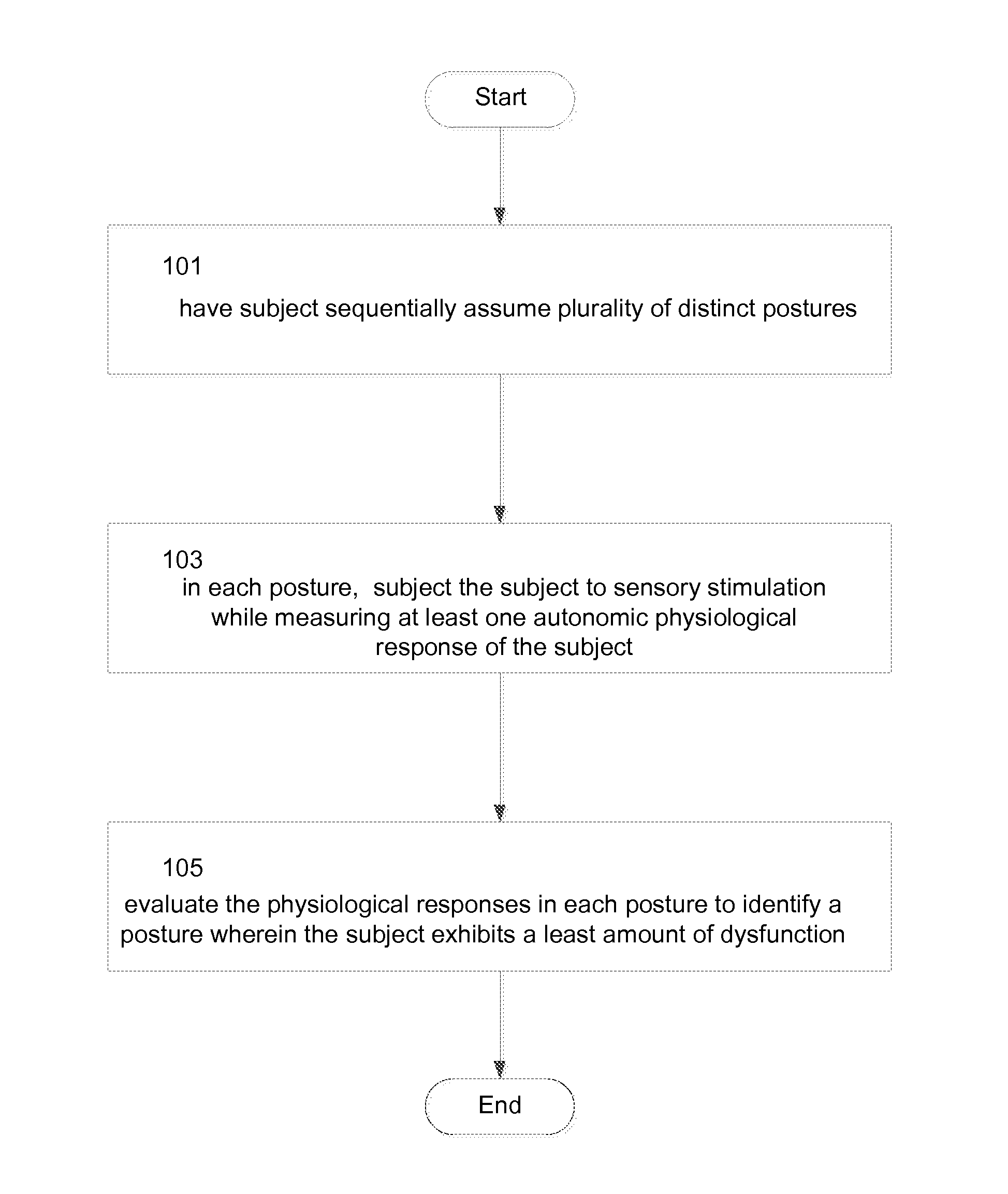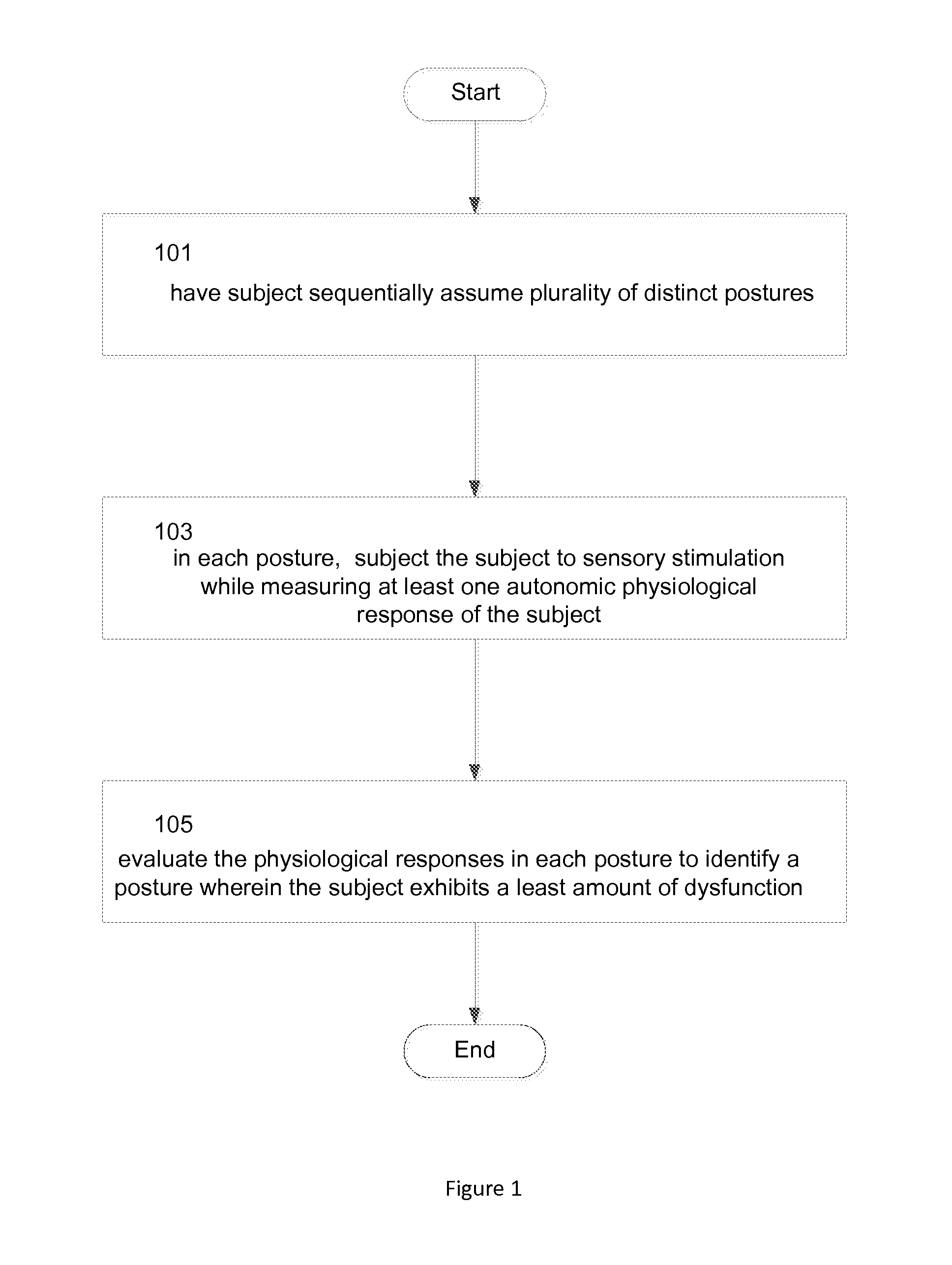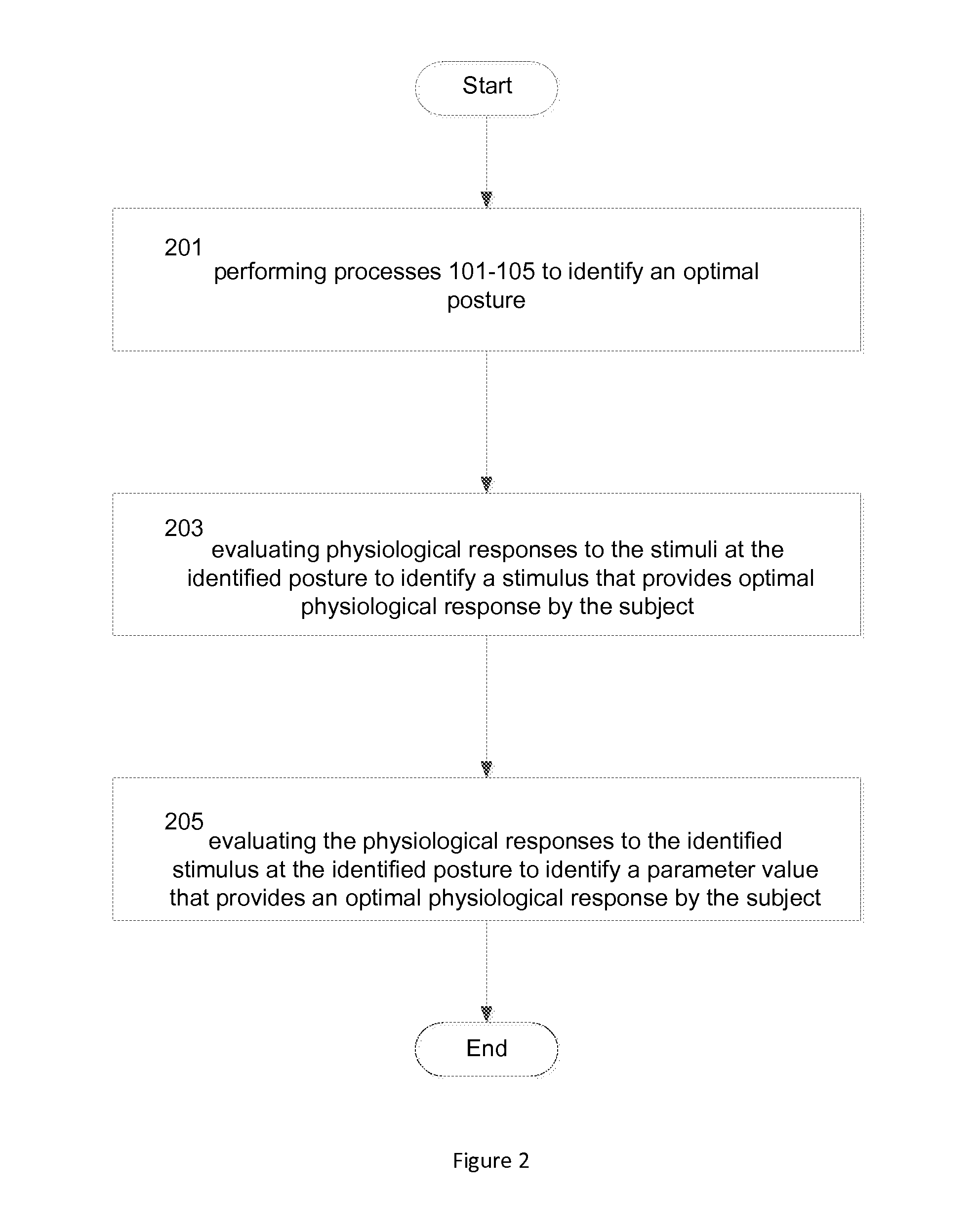Method For Diagnosis Of And Therapy For A Subject Having A Central Nervous System Disorder
herapy method technology, applied in the field of apparatus and method for diagnosing and treating a subject having a central nervous system disorder, can solve the problems of disproportionate unemployment among this population, misdiagnosis of underlying brain function anomalies, and inability to maintain employment, so as to achieve optimal therapeutic effect, different physiological effects, and optimal effect of autonomic nervous system
- Summary
- Abstract
- Description
- Claims
- Application Information
AI Technical Summary
Problems solved by technology
Method used
Image
Examples
experimental case study # 1
Experimental Case Study #1: Hand Replantation
[0096]Between 2002 and 2007, hand replantation was performed in three males ranging from 8 to 22 years. While all three males received conventional hand therapy, the third case also received experimental treatment in accordance with some of the techniques described above. At the conclusion of this study, each patient achieved a useful but diminished function of their replanted hand. However, the patient who received the experimental treatment demonstrated better overall functioning, suggesting that cortical configurations in the brain-central nervous system and hand can be externally influenced and even partially restored in the case of hand replantations.
[0097]Summary: The aim of this case study was to report on the functional outcomes of non-dominate hand replantation. For the case receiving the experimental treatment, the purpose was to see how the neurocortical, sensory, and motor stimulation described herein affects peripheral nerve ...
experimental case study # 2
Experimental Case Study #2: Concussion
[0109]An eleven year old female presented for care accompanied by her parents for evaluation of post-concussion syndrome. She sustained a sports related injury about one year earlier while playing basketball. First, she struck her left temporal area against another athlete's shoulder and fell backwards without breaking her fall or bracing herself. She struck the back of her head directly, and then possibly her right shoulder on a hard wood floor. She has made progress with treatment to date, however she remains with residual headaches, and upper neck pain, severe light and sound sensitivity that results in fatigue and increased headache. She describes an unpredictable nature to the onset of symptoms which are aggravated by stress, reading, writing, and traveling in a vehicle. She is sensitive to movement with resultant varying degrees of increased symptomatology after a period of physical activity. Her diagnosis has included concussion syndrome,...
PUM
 Login to View More
Login to View More Abstract
Description
Claims
Application Information
 Login to View More
Login to View More - R&D
- Intellectual Property
- Life Sciences
- Materials
- Tech Scout
- Unparalleled Data Quality
- Higher Quality Content
- 60% Fewer Hallucinations
Browse by: Latest US Patents, China's latest patents, Technical Efficacy Thesaurus, Application Domain, Technology Topic, Popular Technical Reports.
© 2025 PatSnap. All rights reserved.Legal|Privacy policy|Modern Slavery Act Transparency Statement|Sitemap|About US| Contact US: help@patsnap.com



